Find Help
More Items From Ergsy search
-
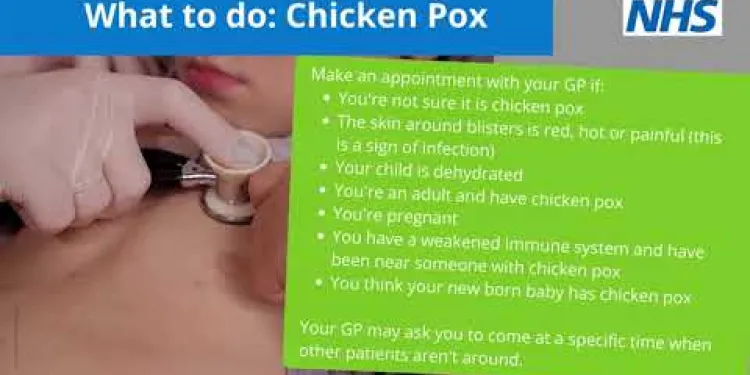
How to care for someone with chicken pox
Relevance: 100%
-

Dementia Care at Colten Care
Relevance: 27%
-
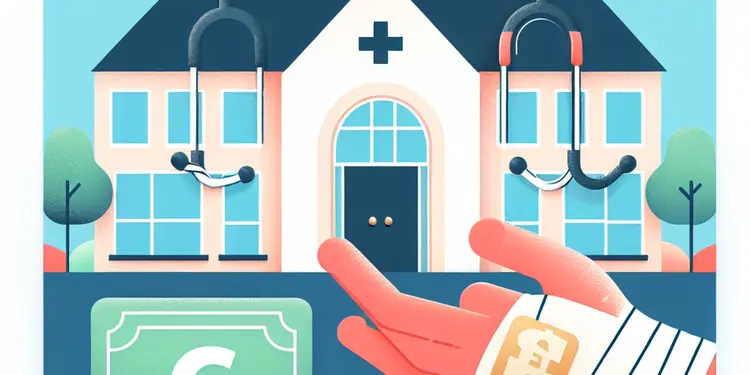
Do care homes provide medical care?
Relevance: 26%
-

How is the quality of care regulated in care homes?
Relevance: 25%
-

What are Care Homes?
Relevance: 24%
-
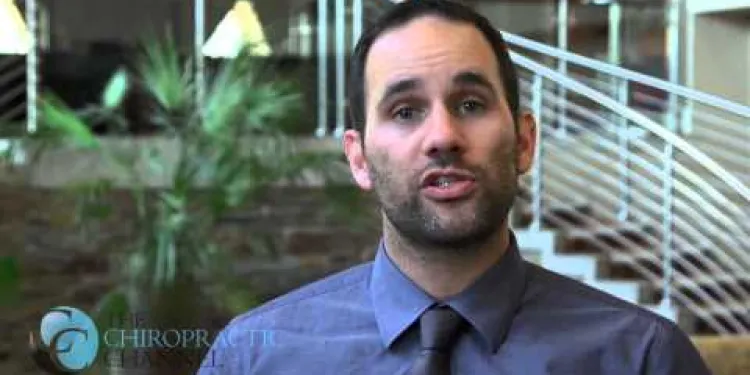
Chiropractic Care on the NHS
Relevance: 23%
-
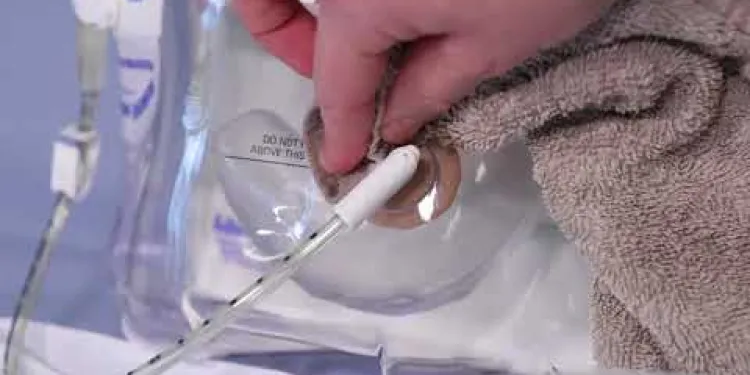
Stoma Care
Relevance: 23%
-

Neck Care Exercises
Relevance: 22%
-

Are there different types of care homes?
Relevance: 22%
-

What is end of life care?
Relevance: 22%
-

Can live-in care be customized?
Relevance: 22%
-

The role of care homes dedicated to caring for people living with dementia and memory loss
Relevance: 22%
-

What is the role of Live In Care?
Relevance: 22%
-

How can primary care support workers contribute to patient care improvement?
Relevance: 22%
-
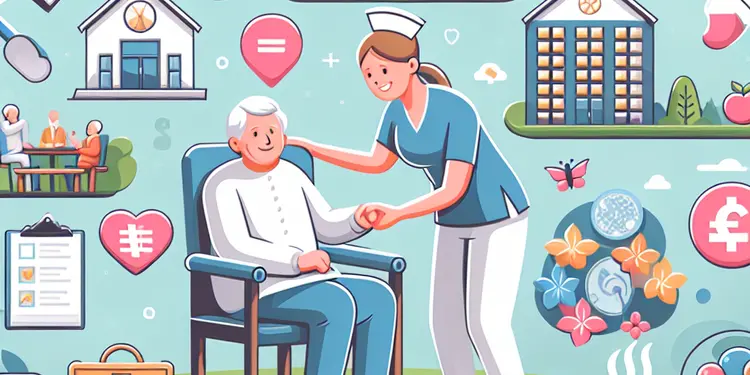
What services do care homes provide?
Relevance: 21%
-
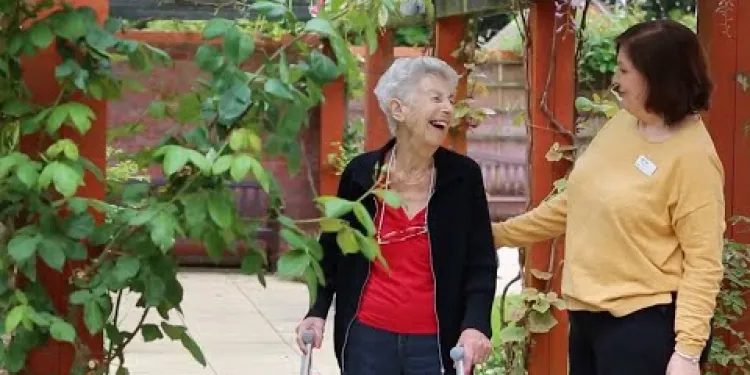
Amberwood House (Colten Care)
Relevance: 21%
-
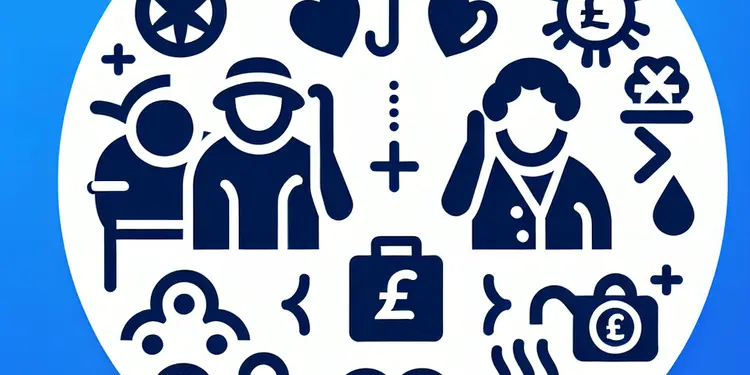
Who benefits from live-in care?
Relevance: 21%
-

Birchgrove - Assisted-living accommodation and care
Relevance: 21%
-

Who can live in a care home?
Relevance: 21%
-

Dr Hilary Jones on Residential Care PART 2.
Relevance: 21%
-

Is live-in care available for short-term needs?
Relevance: 21%
-

Is live-in care an alternative to nursing homes?
Relevance: 21%
-

Dr Hilary Jones on Residential Care PART 1.
Relevance: 21%
-
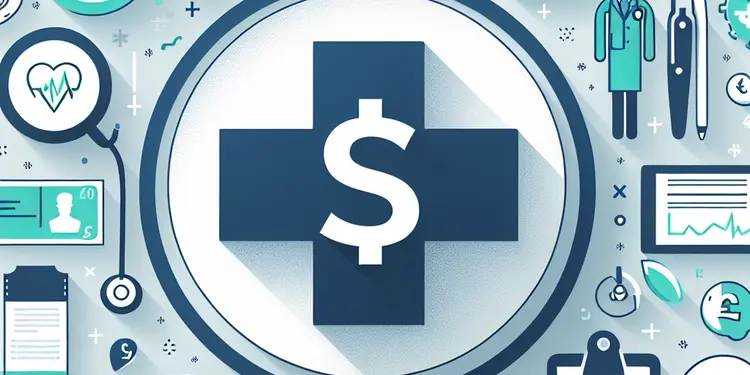
Are there opportunities for specialization in primary care support?
Relevance: 21%
-

Are dietary needs accommodated in care homes?
Relevance: 21%
-

Child Care Proceedings | Family Law
Relevance: 21%
-

Are activities provided for residents in care homes?
Relevance: 21%
-

How is the quality of live-in care monitored?
Relevance: 21%
-

Can chiropractic care help with arthritis?
Relevance: 21%
-

What is the standard of care in professional negligence?
Relevance: 21%
-

What are the visiting hours for care homes?
Relevance: 21%
-

What happens if a resident's care needs change?
Relevance: 20%
-

What qualifications do care home staff have?
Relevance: 20%
-

Can couples live together in a care home?
Relevance: 20%
-

How can I plan for future care needs?
Relevance: 20%
-

Does live-in care include medical services?
Relevance: 20%
-

How can I choose the right care home?
Relevance: 20%
-

Can live-in care support individuals with dementia?
Relevance: 20%
-

Can children benefit from chiropractic care?
Relevance: 20%
-

How does billing for live-in care work?
Relevance: 20%
How to Care for Someone with Chicken Pox
Identifying Chicken Pox
Chicken pox, caused by the varicella-zoster virus, is a common illness in the UK, especially among children. It typically presents as an itchy rash with red spots and fluid-filled blisters. Symptoms also include fever, fatigue, and loss of appetite. It's essential to correctly identify chicken pox early to begin appropriate care.
Isolating the Patient
Chicken pox is highly contagious, so isolation is crucial. The individual should stay at home and avoid contact with non-infected people for about 5-7 days from the onset of the rash until all the blisters have crusted over. This helps to prevent the spread of the infection.
Relieving Itching
The itching can be severe. To alleviate it, use anti-itch lotions such as calamine lotion or antihistamine medications recommended by a pharmacist. Cool baths with added baking soda or colloidal oatmeal can also provide relief.
Managing Fever and Pain
Paracetamol is generally recommended to reduce fever and pain. Avoid giving aspirin to children due to the risk of Reye’s syndrome, which can be serious.
Maintaining Hydration and Nutrition
It's important to encourage the patient to drink plenty of fluids such as water, fruit juices, and soups to stay hydrated. Soft foods are best if mouth sores are present. A balanced diet helps in quicker recovery.
Preventing Scratching
Scratching can lead to infections and scarring. Keep the patient's nails trimmed short and consider using mittens for younger children. Distraction through activities or entertainment might also reduce the urge to scratch.
Monitoring Secondary Infections
Keep an eye on any signs of bacterial infection like increased redness, swelling, warmth, or pus at the site of blisters. If you notice these symptoms, seek medical advice promptly.
Seeking Medical Advice
Consult a healthcare professional if the patient has a weakened immune system, is pregnant, over 12 years old, or if there are complications such as breathing difficulties or persistent high fever.
Preventing Future Outbreaks
Consider vaccination for chicken pox, especially for those who haven't had it, to protect against future infections. In the UK, the NHS provides the chickenpox vaccine for those in high-risk categories.
How to Care for Someone with Chicken Pox
What is Chicken Pox?
Chicken pox is a sickness caused by a virus called varicella-zoster. It's common in the UK, especially in kids. When someone has chicken pox, they get an itchy rash with red spots and blisters. They might also have a fever, feel very tired, and not want to eat. It is important to know if someone has chicken pox so you can help them feel better.
Keeping the Sick Person Away from Others
Chicken pox spreads very easily. So, the sick person should stay at home and not be around others who are not sick. This should be for about 5-7 days from when the rash starts until the blisters turn into scabs. This helps stop the sickness from spreading.
Helping with Itching
Chicken pox can make you itch a lot! To help, you can use special lotions like calamine lotion. You can also ask a pharmacist for medicine to help with the itch. Taking cool baths with baking soda or special oatmeal can also help.
Helping with Fever and Pain
If they have a fever or are in pain, paracetamol can help. But do not give aspirin to children because it can be dangerous.
Drinking and Eating Well
It's important for them to drink a lot, like water, juice, or soup, to stay hydrated. If they have sores in their mouth, offer soft foods. Eating good food helps them get better faster.
Stopping the Itch and Scratching
If you scratch the spots, they can get infected and leave scars. Keep nails short and use mittens for little children. Try to keep their hands busy with games or fun activities.
Watching for Infections
Watch out for signs of a bad infection like more redness, swelling, warmth, or pus where the spots are. If you see this, call a doctor.
When to Ask a Doctor for Help
Talk to a doctor if the sick person has a weak body to fight sickness, is pregnant, older than 12 years, or has problems like trouble breathing or a high fever that won't go away.
Stopping Chicken Pox from Coming Back
Think about getting a chicken pox vaccine. This is important for people who have never had it. In the UK, the NHS gives the vaccine to people who are more likely to get sick.
Frequently Asked Questions
What are the initial symptoms of chickenpox?
The initial symptoms include fever, tiredness, loss of appetite, and headache, followed by the appearance of red spots which turn into itchy blisters.
Is chickenpox contagious and how does it spread?
Yes, chickenpox is highly contagious and spreads through direct contact with the blisters or via airborne transmission from respiratory droplets.
How long is someone with chickenpox contagious?
An individual is contagious from about 1-2 days before the rash appears until all the blisters have formed scabs, which usually takes about 5-7 days.
What home remedies can help alleviate itching?
Taking lukewarm baths with baking soda, uncooked oatmeal, or colloidal oatmeal can help relieve itching. Applying calamine lotion and wearing loose, cotton clothing also help.
Can pain and fever be managed with medication?
Yes, paracetamol (acetaminophen) can be used to reduce fever and relieve pain. Avoid giving aspirin to children with chickenpox due to the risk of Reye's syndrome.
How should chickenpox spots be cared for?
Keep the skin clean and dry, and trim fingernails to prevent scratching and infection. Apply a topical antibiotic to any bacteria-infected blisters.
Can antihistamines help with chickenpox?
Yes, antihistamines like cetirizine or diphenhydramine can help reduce itching and improve comfort.
Should someone with chickenpox stay home from school or work?
Yes, they should stay home until all chickenpox blisters have scabbed over to avoid spreading the virus.
What complications can arise from chickenpox?
Complications can include bacterial infections of the skin, pneumonia, encephalitis, and in rare cases, severe infection in those with a weakened immune system.
When should you seek medical advice for chickenpox?
Seek medical advice if the person has breathing difficulties, persistent high fever, severe headache, confusion, stiff neck, or signs of bacterial infection such as redness, warmth, or pus around the blisters.
Can chickenpox be prevented?
Yes, the chickenpox vaccine (varicella vaccine) is highly effective at preventing chickenpox and its potential complications.
How should the fever be monitored in someone with chickenpox?
Regularly check the temperature and ensure the person stays hydrated by drinking lots of fluids. Avoid alcohol and caffeine-based drinks.
Is it necessary to isolate household members?
Isolate the infected person as much as possible, especially from newborns, pregnant women, and individuals with a weakened immune system who are at higher risk of severe disease.
Can a person get chickenpox more than once?
It is rare, but a person can get chickenpox more than once. However, the virus can later cause shingles in individuals who have previously had chickenpox.
What dietary considerations should be made during chickenpox?
Encourage a balanced diet with plenty of fluids to prevent dehydration. Soft, bland foods might be preferable if blisters are present in the mouth.
What are the first signs of chickenpox?
Chickenpox can make you feel sick. Here are some things to look for:
- Itchy spots on your skin.
- Feeling very tired.
- A fever, which means your body gets hot.
- A headache, which makes your head hurt.
If you or someone you know might have chickenpox, it's a good idea to:
- Talk to a doctor or nurse.
- Get lots of rest.
- Drink lots of water.
- Use a cool cloth to feel better.
First, you might feel hot and sweaty. This is called a fever. You might also feel very tired and not want to eat anything. Your head might hurt too. Then, you will see red spots on your skin. These spots will change into blisters that make you want to scratch them.
Can you catch chickenpox from someone else and how do you get it?
Yes, chickenpox spreads easily. You can catch it by touching the spots or breathing in tiny droplets in the air when a sick person coughs or sneezes.
When can you catch chickenpox from someone?
You can spread the illness 1 to 2 days before you see a rash. You keep spreading it until all the blisters dry up and form scabs. This takes about 5 to 7 days.
What can you do at home to help stop itching?
Warm baths can help if your skin is itchy. You can put baking soda or plain oatmeal in the bath. Oatmeal that is special for baths is even better.
You can also use calamine lotion on your skin. Wear soft clothes made of cotton. Make sure they are not tight.
Can medicine help with pain and feeling hot (fever)?
Yes, medicine can help when you are in pain or have a fever.
Here are some things that might help:
- Take medicine like paracetamol or ibuprofen. These can make you feel better.
- Always ask an adult or a doctor before taking medicine.
- Use a thermometer to check your temperature if you feel hot.
If you do not feel better, tell a doctor or an adult.
Yes, you can give paracetamol to help lower a fever and stop pain. Don't give aspirin to kids with chickenpox because it can make them very sick with Reye's syndrome.
How to take care of chickenpox spots?
Chickenpox spots can be itchy and uncomfortable. Here are some easy tips to help you take care of them:
- Try not to scratch the spots. Scratching can make them worse.
- Keep your nails short so you don't scratch too hard by mistake.
- You can take a cool bath to help with the itching.
- Ask an adult to put calamine lotion on the spots. It helps stop the itch.
- Wear loose and soft clothes so the spots don't get irritated.
If you find it hard to remember these tips, ask an adult to help you. You can also use a calendar to check off each day you follow the tips.
Keep your skin clean and dry. Cut your fingernails short. This helps stop scratching and getting infections. If you have blisters with germs, put special cream on them to help.
Can medicine help with chickenpox itching?
Chickenpox can make your skin very itchy.
Some people take special medicine called antihistamines. This medicine can help stop the itching.
If you have chickenpox, talk to your doctor or a nurse. They can tell you if this medicine is good for you.
If you feel itchy, try not to scratch. Scratching can hurt your skin.
You can ask an adult to help you stay comfortable. You might also try using cool, wet cloths or taking a bath to feel better.
Yes, medicines like cetirizine or diphenhydramine can help stop itching and make you feel better.
Should you stay home from school or work if you have chickenpox?
If you have chickenpox, it is best to stay home. This helps stop the spread of the illness to others.
Chickenpox can spread easily, so staying home keeps your friends and co-workers safe.
Ask an adult to help you call your school or workplace to let them know you are sick.
Here are some helpful tips:
- Rest and drink plenty of water.
- Ask a grown-up to talk to a doctor if you feel very sick.
- Use a cool washcloth on itchy spots to help feel better.
Yes, they should stay home until all the chickenpox spots have turned into scabs. This helps stop the virus from spreading.
What problems can happen because of chickenpox?
Problems can happen if you get chickenpox. Your skin might get sick from germs. You could get a lung sickness called pneumonia. Your brain might swell, which is called encephalitis. People who are already sick with a weak body can get very sick, but this does not happen often.
When should you talk to a doctor about chickenpox?
Chickenpox can make you feel itchy and uncomfortable. Most people get better at home.
Talk to a doctor if you:
- Have a high fever.
- Feel very sick.
- Notice your skin gets very red or painful.
- Find it hard to breathe or feel dizzy.
Show pictures or use a chart to help you understand. You can also ask someone you trust to help you read.
Talk to a doctor if the person has trouble breathing, a high fever that won't go away, a really bad headache, is confused, has a stiff neck, or shows signs of an infection. These signs might be red, warm, or have pus around the blisters.
How can we stop chickenpox?
Yes, the chickenpox shot works very well to stop people from getting chickenpox and getting sick from it.
How to Check Fever in Someone with Chickenpox?
Check the temperature often. Make sure the person drinks a lot of water or juice. Do not give them drinks with alcohol or caffeine.
Do I need to keep family apart from each other?
Keep the sick person away from other people as much as you can. This is very important for newborn babies, pregnant women, and people who are not very strong and can get sick easily.
Can someone have chickenpox more than one time?
Most people get chickenpox only one time.
But sometimes, a person can get it again.
If you had chickenpox before, you might not get it again.
If you are not sure, you can ask a doctor.
Using pictures or videos can help you learn more.
If you know someone who understands this, ask them to explain it to you.
It doesn't happen often, but you can get chickenpox again. If you had chickenpox before, later you might get something called shingles.
If you find reading difficult, you can:
- Ask someone to read with you.
- Listen to an audio version of the text.
- Break the text into smaller parts to understand better.
What should you eat when you have chickenpox?
When you have chickenpox, it's important to eat the right foods. Here are some easy tips: - **Drink lots of water**: Water helps you feel better. - **Eat soft foods**: Soft foods are easy to eat if your mouth hurts. Try soup, yogurt, or mashed potatoes. - **Avoid spicy or salty foods**: These can hurt your mouth or throat. - **Eat fruits and vegetables**: They help your body fight the chickenpox. If you need help with what to eat, ask a grown-up or a doctor. Here are some tools and techniques for support: - **Use a straw**: A straw can help you drink more easily. - **Eat small meals**: Eating little bits at a time is easier if you don't feel hungry. - **Rest a lot**: Rest helps your body heal. Remember, always talk to a doctor if you have questions.Eat different foods and drink lots of water. This stops you from getting sick because of not drinking enough. If your mouth hurts, eat soft and plain foods. This can help.
Useful Links
- Ergsy carfully checks the information in the videos we provide here.
- Videos shown by Youtube after a video has completed, have NOT been reviewed by ERGSY.
- To view, click the arrow in centre of video.
- Most of the videos you find here will have subtitles and/or closed captions available.
- You may need to turn these on, and choose your preferred language.
- Go to the video you'd like to watch.
- If closed captions (CC) are available, settings will be visible on the bottom right of the video player.
- To turn on Captions, click settings .
- To turn off Captions, click settings again.
More Items From Ergsy search
-

How to care for someone with chicken pox
Relevance: 100%
-

Dementia Care at Colten Care
Relevance: 27%
-

Do care homes provide medical care?
Relevance: 26%
-

How is the quality of care regulated in care homes?
Relevance: 25%
-

What are Care Homes?
Relevance: 24%
-

Chiropractic Care on the NHS
Relevance: 23%
-

Stoma Care
Relevance: 23%
-

Neck Care Exercises
Relevance: 22%
-

Are there different types of care homes?
Relevance: 22%
-

What is end of life care?
Relevance: 22%
-

Can live-in care be customized?
Relevance: 22%
-

The role of care homes dedicated to caring for people living with dementia and memory loss
Relevance: 22%
-

What is the role of Live In Care?
Relevance: 22%
-

How can primary care support workers contribute to patient care improvement?
Relevance: 22%
-

What services do care homes provide?
Relevance: 21%
-

Amberwood House (Colten Care)
Relevance: 21%
-

Who benefits from live-in care?
Relevance: 21%
-

Birchgrove - Assisted-living accommodation and care
Relevance: 21%
-

Who can live in a care home?
Relevance: 21%
-

Dr Hilary Jones on Residential Care PART 2.
Relevance: 21%
-

Is live-in care available for short-term needs?
Relevance: 21%
-

Is live-in care an alternative to nursing homes?
Relevance: 21%
-

Dr Hilary Jones on Residential Care PART 1.
Relevance: 21%
-

Are there opportunities for specialization in primary care support?
Relevance: 21%
-

Are dietary needs accommodated in care homes?
Relevance: 21%
-

Child Care Proceedings | Family Law
Relevance: 21%
-

Are activities provided for residents in care homes?
Relevance: 21%
-

How is the quality of live-in care monitored?
Relevance: 21%
-

Can chiropractic care help with arthritis?
Relevance: 21%
-

What is the standard of care in professional negligence?
Relevance: 21%
-

What are the visiting hours for care homes?
Relevance: 21%
-

What happens if a resident's care needs change?
Relevance: 20%
-

What qualifications do care home staff have?
Relevance: 20%
-

Can couples live together in a care home?
Relevance: 20%
-

How can I plan for future care needs?
Relevance: 20%
-

Does live-in care include medical services?
Relevance: 20%
-

How can I choose the right care home?
Relevance: 20%
-

Can live-in care support individuals with dementia?
Relevance: 20%
-

Can children benefit from chiropractic care?
Relevance: 20%
-

How does billing for live-in care work?
Relevance: 20%


